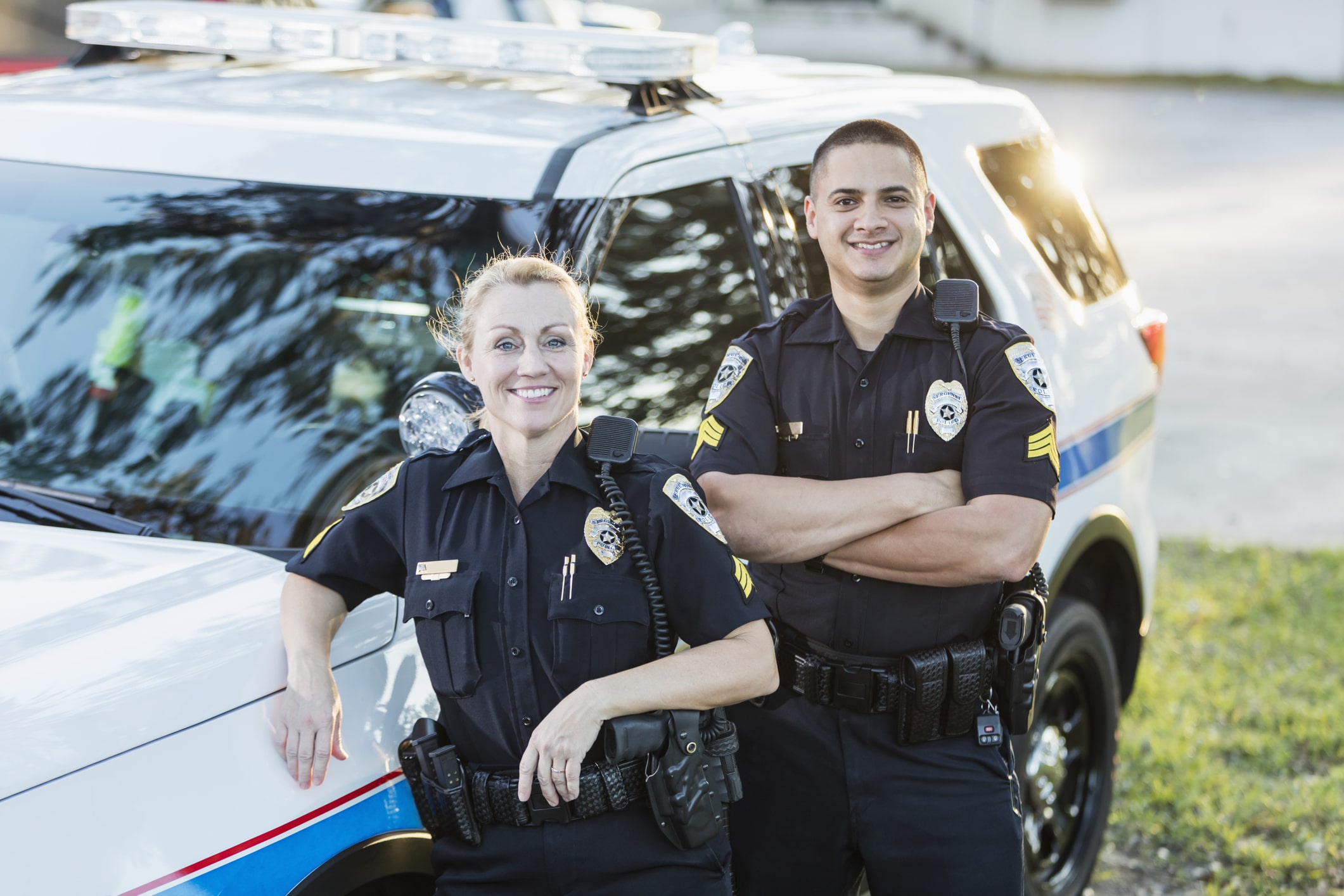A career in law enforcement includes many types of available positions, and people are interested in this type of career for many reasons: to keep their communities safe, to work with those who have been incarcerated after they have been released, to save lives, for the camaraderie among law enforcement officers, and simply to help people.
Harold Grant, a former federal parole officer, investigator for the Manhattan Supreme Court, federal probation officer, and supervisor of police satellite offices shared his view on the rewarding nature of the job:
“The best part [of law enforcement] is making a difference. Not in a grand scale, but almost on a one to one basis because in law enforcement, there’s so much discretion. It’s not all rule bound and you really have to have a social IQ. You have to be able to evaluate and read people well. You do get to make decisions every day that affect people other than yourselves, and sometimes that’s positive, and sometimes you may make the wrong call. But you try to live by a certain code and that’s a worthwhile endeavor,” said Grant.
Grant stressed the importance of being “rule bound” and working on your computer literacy skills, Spanish language skills, and writing skills as law enforcement jobs include a fair amount of paperwork.
If you’re pursuing a career in law enforcement, whether you want to become a police sergeant, court officer, or special agent, you’re going to have to pass some sort of law enforcement exam. Serving as a law enforcement officer is an important role, and testing is done to assess a candidate’s knowledge of the position and ability to perform job-specific duties.
While there are similarities among the tests given to different positions in law enforcement, it is important to know the specifics of the test you will be taking. Each law enforcement test has unique elements to take note of as a test-taker and law enforcement job candidate. Grant offered his advice for test-takers:
“You have to understand before you go in to take a test what they’re looking for. My advice would be to make sure that you do a lot of research on the criteria for the testing and what each individual, not just state but department, criteria they’re looking for,” said Grant.
Need help studying for the Law Enforcement Exams? Check out Peterson’s Law Enforcement test prep.
Special Agent Exam
The special agent examination process includes several written tests, interviews, polygraphs, and physical exams. Sections of the exam feature verbal reasoning, logical reasoning, quantitative reasoning, arithmetic reasoning, and problems for investigation.
Corrections Officer Exam
The corrections officer screening process features a written exam, potential promotion exam (based on your current rank), interview, physical fitness test, background investigation, psychological interview, drug test, and medical examination.
Court Officer Exam
To become a court officer, you must undergo a background check and drug test. Many court officers are required to have a gun license or permit, as well as pass a physical, written, and oral exam.
Parole and Probation Officer Exam
The Parole/Probation Officer Exam includes a written test that assesses your knowledge and skills in several key areas: following written directions, problem solving, reading comprehension, writing clarity/written communication, writing detail, accuracy with forms and coded information, work attitudes, and probation and parole concepts. You will also have to undergo a background check, medical exam, and psychological exam to become a parole or probation officer.
Police Officer Exam
Depending on the particular police station you are attempting to be hired at, the police officer screening process may include a written examination, oral board interviews, video-based exams, computer-administered testing, a physical performance test, background check, and psychological evaluation. Your judgement as a potential police officer will be of great importance in these exams.
Police Sergeant, Lieutenant, and Captain Promotion Exam
The promotion process varies between stations, counties, and states. However, you will need to take a written exam, and will likely participate in an interview or oral exam. Questions on the written exam include civil service questions, job-specific questions, mathematics questions, and model examination questions.
State Trooper Exam
The state trooper examination process varies depending on your state’s requirements, but you can generally expect a written test, three physical ability tests, psychological evaluation, background investigation, polygraph test, and medical examination.
Corrections Officer Exam
To become a Corrections Officer, you must undergo a background check, take a written and physical test, and participate in an interview process. The written test typically features five main areas: reading comprehension and deductive reasoning, situational judgment and reasoning skills, arithmetic/basic mathematics, memory and observational skills, and verbal reasoning. Physical test elements may include running a 500 yard course in under five minutes, carrying two 45 pound weights for 50 yards, carrying one 45 pound weight for 75 yards, taking a push-up test, taking a sit-up test, and completing a timed, 1.5 mile run.
U.S. Border Patrol Exam
Becoming a U.S. Border Patrol Agent will require a written test, oral interview, and background investigation. The written test will include three main sections: a logical reasoning test, Spanish language proficiency test, and artificial language test.
There are many ways to make a fulfilling career in law enforcement. Look into the various fields within law enforcement to find which may appeal to your personal interests, skills, and passions.



